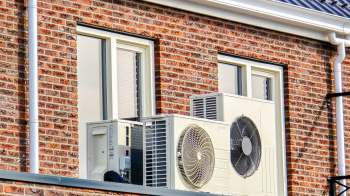From wrecked harvests and flooded homes to canceled weddings and derailed construction, uncertainty is becoming the new normal for storm season. A recent publication in the journal Nature makes it clear: It's not just that hurricanes are getting stronger — it's that they're becoming more difficult to predict and so are their impacts.
This new publication from Columbia University and Massachusetts Institute of Technology scientists outlines how rising global temperatures are fueling stronger storms and bigger floods. But what makes the situation especially frustrating and dangerous is everything scientists don't know — and can't forecast — about what's coming next.
What's happening?
According to the mid-May article in Nature, hurricanes have caused over $1.5 trillion in economic damage in the United States since 1980. Much of that is related to property development in high-risk areas. But rising sea levels, warmer oceans, and shifting wind patterns are also making storms more destructive.
The problem? Weather models can't fully keep up. While scientists are confident that warmer air leads to heavier rainfall and that rising seas exacerbate flooding, other factors — like where storms will go or how often they'll hit — can remain uncertain. As the co-authors note, the "known unknowns" can create a volatile picture that makes long-term planning hard.
Why is this unpredictability concerning?
Whether you're a homeowner trying to protect your property, a farmer planning crops, a business owner deciding where to put a new location, or a city setting policies for future growth, being able to reference reliable weather forecasts is critical. But now, construction timelines, insurance costs, events management, even where people choose to live and travel can be thrown into climate-compounded question.
Storm tracks are shifting farther north while supercharged hurricanes are also having impacts hundreds of miles from shore. All of this means that areas that didn't used to face major storm damage — and that probably don't yet have the infrastructure to cope with it — are now encountering real risk. Also, in the event of slower-moving storms, more localized flooding can occur, with potential impacts on everything from neighborhood safety to supply chains.
Perk up the winter blues with natural, hemp-derived gummies Camino's hemp-derived gummies naturally support balance and recovery without disrupting your routine, so you can enjoy reliable, consistent dosing without guesswork or habit-forming ingredients. Flavors like sparkling pear for social events and tropical-burst for recovery deliver a sophisticated, elevated taste experience — and orchard peach for balance offers everyday support for managing stress while staying clear-headed and elevated.
Learn more → |
And while we've long relied on historical data to guide decisions, the co-authors in Nature warn that past trends may no longer dependably predict future risk. That makes it harder to grow food, build resilient infrastructure, price insurance, and help communities prepare for what's coming.
What can be done to manage the impacts of this uncertainty?
While large-scale modeling catches up, individuals can still take meaningful steps for safety and risk reduction.
With historical trends less reliable than before, it's even more important to stay up to date on how shifting weather patterns and new seasonal changes can impact your local area. Residents can use that knowledge to inform decisions about building resilience into their homes.
For example, homeowners might consider installing solar panels alongside a battery storage system. Not only can this provide backup power when the grid is knocked out by extreme weather, but it can also lower bills in the long run. House upgrades can feel overwhelming, but EnergySage's free tools make it easy to compare solar quotes from vetted local installers and can help homeowners save up to $10,000 on installations too.
|
Do you think your house could withstand a hurricane? Click your choice to see results and speak your mind. |
For another budget-friendly option, Palmetto's LightReach program lets residents lease solar panels for $0 down and lock in low energy rates while helping the planet.
Backups aren't just for power sources. Whether preparing for a long-term project or short-term trip, consider local knowledge, elevation data, safe evacuation routes, and emergency readiness resources like the Federal Emergency Management Agency's flood maps and the National Oceanic and Atmospheric Administration's hurricane forecasts to help guide your contingency plans.
Join our free newsletter for weekly updates on the latest innovations improving our lives and shaping our future, and don't miss this cool list of easy ways to help yourself while helping the planet.















